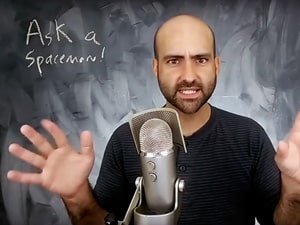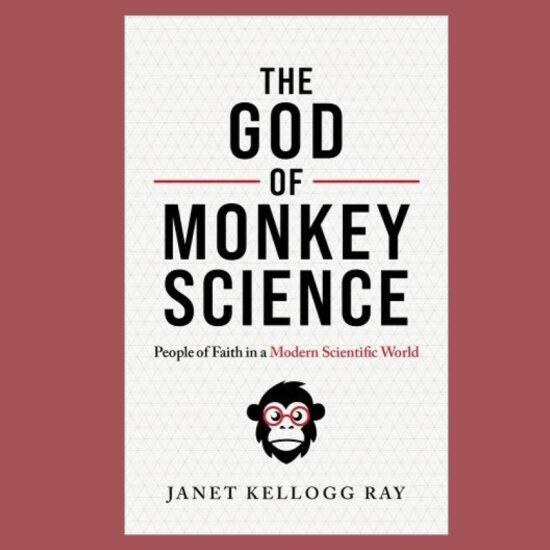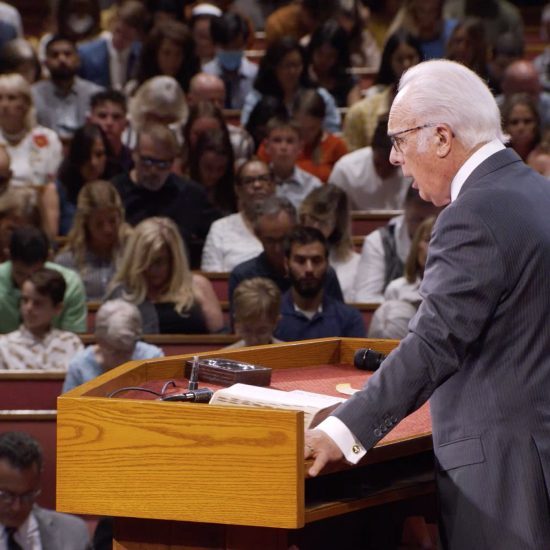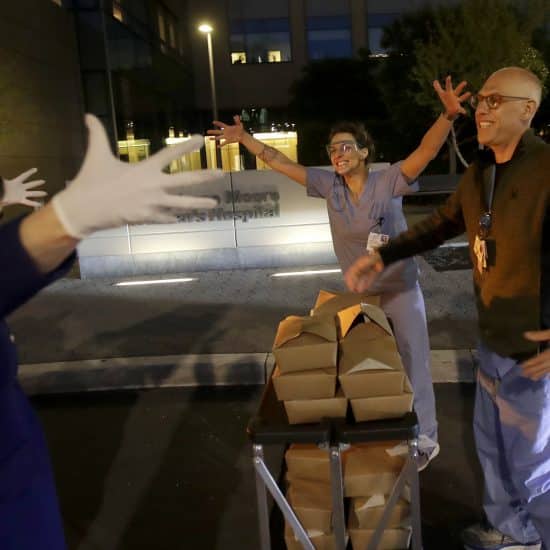(RNS) Paul M. Sutter teaches astrophysics at Ohio State University but reaches a far broader audience through his “Ask a Spaceman” podcast and on social media, where he fields questions — in plain, entertaining and conversational English — from anyone who wonders about the cosmos.
And because science and faith both embrace the biggest of questions of the universe, Sutter sometimes finds himself addressing people who want to know about God, or how they can reconcile science with what they have been taught in Sunday school.
 Astrophysicist Paul M. Sutter talks about a topic during an “Ask a Spaceman” segment. Screenshot from YouTubeRNS asked Sutter — raised Roman Catholic as the son of a former priest — how he handles these queries, whether science and religion must conflict and what he thought about debate between Bill Nye, aka “The Science Guy,” and creationist Ken Ham.
Astrophysicist Paul M. Sutter talks about a topic during an “Ask a Spaceman” segment. Screenshot from YouTubeRNS asked Sutter — raised Roman Catholic as the son of a former priest — how he handles these queries, whether science and religion must conflict and what he thought about debate between Bill Nye, aka “The Science Guy,” and creationist Ken Ham.
This interview has been edited for length and clarity.
How often do people ask you religious questions?
I get these kinds of questions all the time. Some are antagonistic. But most people are genuinely curious.
I have my own personal rule, which is I never, ever tell people what to believe. And I never, ever tell people they’re wrong. I share with them what I know and how I know it. If someone says, “Well, I think the Earth is a lot younger,” I say, “OK, fair enough. But give me the chance to explain why I think the universe is 13.8 billion years old.”
There’s a century of very difficult work that went into giving that answer and I think that how we got there is far more interesting than the actual number itself. I love the chance to explain that process.
What do you say when someone wants to know how science dovetails with their faith?
These kinds of questions are a lot harder than those coming from people whose faith conflicts with science. Of course I have my own personal beliefs. But when I’m in front of the public I’m not Paul Sutter the human being with complex beliefs. I’m Paul Sutter the astrophysicist. So I’m only going to share what I know from science.
If someone says, “Help me understand the nature of divinity or this section from the Bible,” I honestly can’t help them. They might want to talk to a theologian or a philosopher. I’m in the astronomy department.
But when you tell people you can’t help them with their faith questions because you’re a scientist, aren’t you sending a message that there’s an incompatibility between faith and science?
I personally believe that there is only a conflict between science and religion if you want there to be one. People ask if scientists are religious. I tell them that I personally know many scientists who are atheists, and many scientists who are very devout Catholics, and Muslims and Jews and Hindus — and they all seem to sleep at night and they all are able to get work done and they all are able to pray, if they’re the praying kind. And we all get along.
I bet you often get asked about your own religious beliefs – or perhaps lack of beliefs.
You can ask about my personal beliefs and I don’t share them. In my presentations to the public, you are not getting all of Paul Sutter. You don’t want to hear my views on politics. You don’t want to hear my views on dietary habits and hygiene. I’m not an expert on those.
Of course I have my personal beliefs. But there’s a trust there: I speak publicly as an expert, as an avatar of science, to help people understand science and the scientific process. That is my job there and I don’t want to violate that job.
What about the questioners coming from a more hostile place, challenging science from a religious perspective?
Strangely, when people are antagonistic it’s usually not from a religious perspective. Usually those people are conspiracy theorists who hold wild, crazy ideas about how the universe works — like people who believe that we didn’t go to the moon. I honestly can’t think of a case where someone was very antagonistic from a religious perspective.
Did you watch the 2014 debate between Bill Nye, The Science Guy, and creationist Ken Ham?
I deliberately did not, though I’ve seen snippets of it. I thought it was a mistake — for both of them, actually. If an opportunity — and I’ve had a few such opportunities — does not create an educational moment, then I’m not going to do it.
In that debate Bill Nye and Ken Ham essentially gave side-by-side press conferences and they just spoke to their team. Here’s our contender in one corner for religion and here’s our contender in the other corner for science — and they’re going to battle it out? I think that’s the wrong approach. And that’s a destructive approach. There’s no education there. I don’t know who won but we all lost.
How did you learn to talk to people so they’ll listen?
My dad was a Catholic priest before he became my dad and before he left the priesthood to marry my mom. My uncle is actually still a Catholic priest. So it was in part genetics and part being raised to be able to talk loudly in a room. And after that it was practice. I gave as many presentations as I possibly could.
When I watched your Tedx talk — before I knew your father had been a priest — you reminded me of a preacher. Do you think you sound that way?
The first person to point this out was my wife when I did my very first rehearsal for my TEDx talk (an independently organized talk based on the TED Talk format). She and I and my speech coach decided on this more theatrical approach, which is not my typical approach.
My dad was my biggest supporter and my best critic. He was a great coach. He remained very active in the church and would read at Mass sometimes. He had a very deep voice, a very dramatic presentation. I was probably channeling him.





